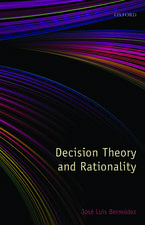What Should We Do with Our Brain?: Perspectives in Continental Philosophy
Autor Catherine Malabou, Sebastian Rand, Marc Jeanneroden Limba Engleză Paperback – 14 oct 2008
| Toate formatele și edițiile | Preț | Express |
|---|---|---|
| Paperback (1) | 164.15 lei 3-5 săpt. | +6.17 lei 6-12 zile |
| ME – Fordham University Press – 14 oct 2008 | 164.15 lei 3-5 săpt. | +6.17 lei 6-12 zile |
| Hardback (1) | 507.48 lei 6-8 săpt. | |
| ME – Fordham University Press – 14 oct 2008 | 507.48 lei 6-8 săpt. |
Din seria Perspectives in Continental Philosophy
-
 Preț: 229.64 lei
Preț: 229.64 lei -
 Preț: 236.80 lei
Preț: 236.80 lei -
 Preț: 192.61 lei
Preț: 192.61 lei -
 Preț: 173.10 lei
Preț: 173.10 lei -
 Preț: 231.82 lei
Preț: 231.82 lei -
 Preț: 274.21 lei
Preț: 274.21 lei -
 Preț: 230.19 lei
Preț: 230.19 lei -
 Preț: 151.38 lei
Preț: 151.38 lei -
 Preț: 287.04 lei
Preț: 287.04 lei -
 Preț: 340.24 lei
Preț: 340.24 lei -
 Preț: 261.52 lei
Preț: 261.52 lei -
 Preț: 169.72 lei
Preț: 169.72 lei -
 Preț: 231.22 lei
Preț: 231.22 lei -
 Preț: 206.98 lei
Preț: 206.98 lei -
 Preț: 254.59 lei
Preț: 254.59 lei -
 Preț: 291.08 lei
Preț: 291.08 lei -
 Preț: 290.69 lei
Preț: 290.69 lei -
 Preț: 294.55 lei
Preț: 294.55 lei -
 Preț: 281.05 lei
Preț: 281.05 lei -
 Preț: 334.85 lei
Preț: 334.85 lei -
 Preț: 302.96 lei
Preț: 302.96 lei - 19%
 Preț: 533.96 lei
Preț: 533.96 lei - 19%
 Preț: 533.96 lei
Preț: 533.96 lei - 19%
 Preț: 598.73 lei
Preț: 598.73 lei -
 Preț: 262.88 lei
Preț: 262.88 lei -
 Preț: 290.69 lei
Preț: 290.69 lei -
 Preț: 257.48 lei
Preț: 257.48 lei -
 Preț: 284.15 lei
Preț: 284.15 lei -
 Preț: 273.83 lei
Preț: 273.83 lei -
 Preț: 289.76 lei
Preț: 289.76 lei -
 Preț: 287.64 lei
Preț: 287.64 lei -
 Preț: 331.97 lei
Preț: 331.97 lei -
 Preț: 261.02 lei
Preț: 261.02 lei -
 Preț: 291.46 lei
Preț: 291.46 lei -
 Preț: 286.06 lei
Preț: 286.06 lei -
 Preț: 332.56 lei
Preț: 332.56 lei -
 Preț: 481.17 lei
Preț: 481.17 lei - 19%
 Preț: 688.25 lei
Preț: 688.25 lei - 19%
 Preț: 592.15 lei
Preț: 592.15 lei -
 Preț: 244.83 lei
Preț: 244.83 lei - 19%
 Preț: 503.25 lei
Preț: 503.25 lei - 19%
 Preț: 533.03 lei
Preț: 533.03 lei
Preț: 164.15 lei
Nou
Puncte Express: 246
Preț estimativ în valută:
31.41€ • 32.79$ • 25.100£
31.41€ • 32.79$ • 25.100£
Carte disponibilă
Livrare economică 14-28 martie
Livrare express 27 februarie-05 martie pentru 16.16 lei
Preluare comenzi: 021 569.72.76
Specificații
ISBN-13: 9780823229536
ISBN-10: 082322953X
Pagini: 120
Dimensiuni: 162 x 221 x 21 mm
Greutate: 0.15 kg
Editura: ME – Fordham University Press
Seria Perspectives in Continental Philosophy
ISBN-10: 082322953X
Pagini: 120
Dimensiuni: 162 x 221 x 21 mm
Greutate: 0.15 kg
Editura: ME – Fordham University Press
Seria Perspectives in Continental Philosophy
Recenzii
Malabou dares to articulate powerfully an inchoate feeling that many share, but few have so far given sufficient expression: the sense that, despite all the exciting advances and insights into the functioning of the brain, the predominant narratives that are routinely spun, the stories that are being told about neuronal organization are remarkably lacking in spirit, creativity, or possibility.-Jan Slaby
The mind is a mirror; a projector; a computer; an economy; it is a self-creating ecology, a wheat field blown by a correspondent breeze. While Catherine Malabou can appreciate the power of a fast-branching metaphor, she begins with the observation that we, the ones who possess the minds that make the metaphors, are mostly disconnected from cognitive systems. Malabou, instead of offering yet another application of research on the brain to yet another sub-discipline, offers a perspective on the field. Instead of rigid determinism, she looks at plasticity, the ability of brains to adapt, to sculpt forms, to embody history, but also to undo past formations, at times explosively. Instead of finding reasons to go on mindlessly accumulating, connecting, and distributing, Malabou hints at what history might become if we are able, as a society, to step back from our necessary but flawed metaphors and become conscious of the brain.
As a rule, neuroscientists avoid two things like a vampire avoids garlic: any links to European metaphysics, political engagement and reflection upon the social conditions which gave rise to their science. Catherine Malabou does exactly this: she provides a Hegelian reading of neurosciences, based on the concept of plasticity, and she reflects upon the uncanny parallels between the model of human mind proposed by neuroscientists and the structure of today's capitalism. For this alone - not to mention a genuine and highly qualified contribution to neuroscience itself - the book is a phenomenal achievement.-Slavoj Zizek
The mind is a mirror; a projector; a computer; an economy; it is a self-creating ecology, a wheat field blown by a correspondent breeze. While Catherine Malabou can appreciate the power of a fast-branching metaphor, she begins with the observation that we, the ones who possess the minds that make the metaphors, are mostly disconnected from cognitive systems. Malabou, instead of offering yet another application of research on the brain to yet another sub-discipline, offers a perspective on the field. Instead of rigid determinism, she looks at plasticity, the ability of brains to adapt, to sculpt forms, to embody history, but also to undo past formations, at times explosively. Instead of finding reasons to go on mindlessly accumulating, connecting, and distributing, Malabou hints at what history might become if we are able, as a society, to step back from our necessary but flawed metaphors and become conscious of the brain.
As a rule, neuroscientists avoid two things like a vampire avoids garlic: any links to European metaphysics, political engagement and reflection upon the social conditions which gave rise to their science. Catherine Malabou does exactly this: she provides a Hegelian reading of neurosciences, based on the concept of plasticity, and she reflects upon the uncanny parallels between the model of human mind proposed by neuroscientists and the structure of today's capitalism. For this alone - not to mention a genuine and highly qualified contribution to neuroscience itself - the book is a phenomenal achievement.-Slavoj Zizek

















